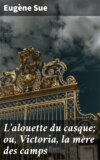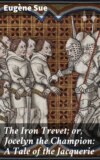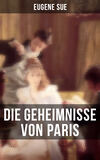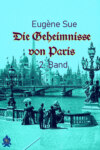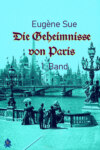Kitabı oku: «A Romance of the West Indies», sayfa 12
"Zounds! that has often made me bitterly lament," said Croustillac, laughing.
"Few fortunes equal yours, sir. The enormous sum you received from the sale of a portion of your precious stones will be secured to you and yours. William of Orange, my master, is not one of those who enrich themselves by confiscating the goods of their political enemies."
"I did not know thou wast so rich, poor Croustillac," said the Gascon to himself. "If I had known this, how little would I have swallowed candles for the amusement of that brute of a sea captain." Then he continued, aloud, "I am aware of the generosity of your master, sir; also of my goods and treasures." And the Gascon said to himself, "It does me good to say this for once in my life – my goods, my treasures."
"The king, my master, my lord, has directed me to say to you that you can charter a vessel to carry your wealth to England."
"Oh, my old pink hose, my old green coat, my felt hat and my old sword!" said Croustillac to himself; "those are my real possessions, my real and personal estate! It would not take a merchant ship to transport them." Then he continued aloud, "But let us return to the motive, sir, which brought you here, and to the discoveries which you have made as to my past life."
"For the past three years, my lord, you have lived on this island, remaining hidden to every one, and causing to be spread by a filibuster and others in your pay the strangest stories concerning your house, in order to keep the curious away."
"I do not understand this at all," thought Croustillac. "Blue Beard – no, the widow, that is to say – no, the duchess or rather the wife of the man who is dead, who is a widower – in fact, the wife of no matter whom, is not, then, behind the best of them with her three oddities. For I have seen with my own eyes her strange familiarity with them. I have heard – come, come, if this lasts but a little longer I shall become mad; I am beginning to feel stupid and to see an endless succession of Roman candles in my head!"
CHAPTER XIX
THE SURPRISE
Rutler continued: "The maneuvers of your emissaries were crowned with perfect success, my lord, and it was due to the merest chance that your existence was revealed to my master, some two months since, and in order to inform him that without your knowledge, or without your full consent, they would make, my lord, a dangerous instrument of you."
"Of me? an instrument of me? and what kind of an instrument, sir?"
"Your grace knows that as well as I do; the policy of the cabinet at Versailles and of the papal court at Saint-Germain recoils before no means; it matters little to them that civil war shall lay waste an unhappy country provided their plans succeed. I have no need to say more, my lord."
"Yes, sir, yes. I desire that you tell me everything; I would see to what point your credulity has been abused. Explain, sir."
"The proof that my credulity has not been abused, my lord, is that my mission has for its end the ruin of the projects of an emissary from France, who, with or without the co-operation of your grace, may arrive at any moment at this island."
"I give you my word of honor, sir, that I am ignorant of the arrival of this French emissary."
"I must believe you, my lord. However, certain rumors have caused the king to think that your grace, forgetting his old resentment against James Stuart, your uncle, had written to this dethroned king to offer him his services."
"James Stuart, being dethroned," said Croustillac, with an accent full of dignity, "changes entirely the face of things, and I should have been able to condescend in regard to my uncle to proceedings which my pride would never have permitted me before."
"Then, my lord, from your point of view, your resolve would not have lacked generosity."
"Doubtless I could perfectly well, without compromitting myself, have been reconciled to a dethroned king," replied Croustillac courageously; "but I have not done so; I swear it on the honor of a gentleman."
"I believe you, your grace."
"Well, then, your mission has no further object."
"You understand, my lord, that, in spite of this guarantee, circumstances may change, and your resolve change with circumstances. The hope of ascending the throne of England causes one to forget many promises and to evade many agreements. Far be it from me to wish to reproach you for the past, but your grace knows what must be sacrificed when one lays audacious hands upon the crown of three kingdoms."
"Zounds!" said Croustillac to himself; "it seems that my hand is not dead, and that I am, clearly, a courageous fellow to be well caged. If I only knew how all this would end I should be very much amused."
"The king can never forget, my lord, that you have your own aspirations to the throne."
"Ah, well, that is true," cried Croustillac, with an expression of frankness – "it is true, I do not deny. But what would you have? ambition, glory, the vigor of youth! But believe me, sir," continued he with a sigh and speaking in a melancholy tone, "age robs us of all that and makes us wise; with added years, ambition is extinguished and one becomes content with very little in one's retreat. Once safely in port, we can cast a philosophical glance on the storms of passion and cultivate the paternal lands, if one has such, or at least look upon the tide of life placidly when about to be swallowed up in the ocean of eternity. In a word, you understand, sir, that if in our first youth we have let ourselves go at an audacious pace it does not follow that in our ripe age we should not realize that all is vanity. I live obscurely and peacefully in the bosom of my retreat, with a young and lovely wife; loved by those about me and doing some good. Ah, sir, this is the only life that I desire; I do not hesitate, then, in confirmation of these words, to swear to you that I will never raise the slightest pretension to the throne of England; on the word of a gentleman, I have not the slightest desire to."
"Unhappily, my lord, I am not at liberty to take your oath; the king, alone, could receive it, and accept it if it seemed well to him, as a sufficient guarantee against fresh troubles. As for me, I have been ordered to conduct your grace to London, and I must fulfill my orders."
"You are very persistent, sir. When you have an idea, you keep to it."
"At whatever cost, my lord, I must carry out the orders given me. You can see by the perfectly calm interview between us that I do not doubt the success of my undertaking; your grace fully understands the motives that influence me; and I do not doubt that you will follow me without the slightest resistance."
Croustillac had prolonged this interview as far as he could; he had decided either to follow the colonel or to tell him the whole truth. He then said to Rutler, "And suppose, sir, that I consent to follow you willingly, what will be the order of our march, as they say?"
"Your grace, though your hands are tied, permit me to offer you my left arm; I shall hold my dagger in my right hand, ready at any moment to plunge it into you, in case of a surprise, and we will proceed to your house."
"And then, sir?"
"Once having reached your house, my lord, you will order one of your slaves at once to direct your negro fishermen to get their boat in readiness; it will suffice to transport us to Barbadoes. In that place we will find a man-of-war which awaits us, and on board which, my lord, you will be transported to London, and placed in the custody of the governor of the Tower."
"And you seriously believe, sir, that I will myself give the order to prepare for my own abduction?"
"Yes, my lord, and for a very simple reason; your grace will feel the point of this dagger."
"Yes, doubtless; you always go back to that, you repeat it often, sir."
"We Dutchmen have little imagination; what would you have? There is nothing more churlish than our manner of acting; but to resume, what is more to the point, this blade of steel will suffice, for if you refuse to obey my slightest injunction, my lord, I have already said by way of warning that I shall kill you without mercy."
"I have also said to you, sir, that your manner of proceeding does not lack originality; but I have slaves – friends, sir – and you see that, in spite of your bravery – "
"My God! your grace, if I kill you it is evident that I shall be killed in turn, either by your slaves or your familiars, the filibuster or the buccaneer, or by the French authorities, who would do perfectly right in shooting me because I come from England, and I have come to this island, which is considered as a stronghold in time of war."
"You perceive, then, sir, that my death will not go unpunished?"
"In accepting this charge I made, in advance, the offering of my life. All that I desire, my lord, is that you shall no longer be the source of fear to my master, a source of trouble for England. King William does not love bloodshed, but he hates civil war. Your perpetual imprisonment or your death alone can reassure him; choose, then, my lord, between the dagger or prison; it must be one; you must become my prisoner or my victim. Moreover, if you were not absolutely in my power I would not say to you, at the price of my life, what I will now say."
"Speak, sir."
"This confidence, while showing you the evil which you can do to England, my lord, also will show you what interest King William has that an enemy like yourself should be rendered powerless to act; the companions of your rebellion, who saw you beheaded before their own eyes, cherish still for you the dearest memories."
"Truly? This does not surprise me in them, and it is the more disinterested in that they all believe that I can never thank them for it." Then Croustillac said to himself, "It must be that this Dutchman, who otherwise is reasonable enough, has a craze on this point – a fixed idea concerning my execution."
The colonel continued, "Ah, my lord, you pay dearly for your influence."
"Very dearly, too dearly, sir, if this be so."
"Why do you wish to deny it, when your enemies remember? when it is known that your followers cherish portions of your clothing, stained with your blood, as if holy relics, and each day lament your death? What would be the result if you should suddenly appear before their eyes? What enthusiasm would you not arouse? I repeat to you, my lord, it is because your influence might be fatal in these troublous times, that it must be neutralized at any cost."
"To stab a man or imprison him for life is what you call neutralizing his influence," said Croustillac. "Ah, well, this is probably a political view of it. After all, I understand the distrust that I inspire you with, for I am an incorrigible conspirator. They cut off my head before my partisans, believing that thus I will be reformed. Not at all! instead of taking warning by this paternal admonition, I conspire still further. It is evident that this ends by making your master impatient. Ah, well, sir, he is unnecessarily moved; for the last time, I solemnly declare, before heaven, that I shall conspire no more; he can rest in peace on his throne, and his crown does not excite in me the slightest covetousness. Is this plain enough, sir?"
"Very plain, and well put, my lord; but I must carry out the commands of the king. When we shall have arrived at your house, I shall have the honor to transmit to you an autograph letter of His Majesty King William, which will leave you in no doubt as to the purpose and authority of the mission with which I am intrusted. Come, my lord, resign yourself; it is the fortune of war. Beside, if you hesitate, I can count upon a powerful ally."
"And that is – "
"Informed by me of the fate which menaces you, you proceed under the touch of my dagger."
"Always his eternal dagger! he is insufferable with his dagger," thought Croustillac. "He has but one word on his tongue."
"The duchess," continued Rutler, "would far rather see you a prisoner than killed; it is well known how she loves you, how devoted she is to you. She would give her life for you. She will aid, then, I am sure, in making you face your position wisely. Meanwhile, my lord, choose; either summon some of your people, if they can hear you, or show me to your house yourself, for your departure must be hastened."
It must be said to Croustillac's credit, that, learning that Blue Beard was the wife of an invisible lord whom she loved passionately, and that he had been taken for this grand lord, he generously resolved to be of some use to this young wife by prolonging as far as possible the mistaken identity of which he was the victim, and to allow himself to be carried off in place of the unknown duke. Happy at the thought that Angela would be under a great obligation, the Gascon resigned himself courageously to submit to all the consequences of the position which he had accepted, only he did not know in what manner he could leave Devil's Cliff without the discovery of his stratagem.
"My lord, I am at your service; it is absolutely imperative that we depart at once," said the colonel impatiently.
"It is I who am at your service," replied the chevalier, who viewed with some disquiet the approach of the critical moment of this interview.
A brilliant idea struck Croustillac; he saw a means of escaping from this danger and of saving the mysterious husband of Blue Beard. "Listen, sir," said the adventurer, assuming an impressive manner. "I give you my word as a gentleman that I will follow you willingly wherever you lead me, but I desire that my wife, the duchess, shall not be informed of my arrest until I have gone."
"How, my lord, you are willing to thus abandon your wife without telling her of your sad situation?"
"Yes, because of reasons known to me alone, and then I would spare myself farewells, which must always be distressing."
"My orders concern you alone, my lord," said the colonel; "you are free to act as seems best to yourself, as far as the duchess is concerned. Nothing could be easier, it seems to me, than to do what you propose. If your wife is astonished at your departure, you can plead the imperative necessity of a journey of some days' duration to St. Pierre. As to my presence here, you can easily explain that. We will go, and your boat will take us to the Barbadoes."
"Doubtless, doubtless," said the embarrassed Gascon, for he saw a number of dangers in the proposition which the colonel made. "Doubtless my departure might be easily explained so, but to give my orders to the negroes, to cause a commotion in the house, would attract my wife's attention. She is extremely timid and is alarmed at everything. Your presence here would arouse her suspicions, and they would necessarily lead up to the painful scene which I would avoid at all cost."
"But, then, my lord, what shall we do?"
"There is a sure way, sir; however dangerous may have been the road by which you have arrived, let us follow it; we will leave the island by the same method by which you reached it. Once at the Barbadoes I will inform my wife of my abduction – the cruel abduction which separates me forever from her; and you will swear to me that she shall not be disturbed after my departure."
"Unfortunately, my lord, what you propose is impossible."
"How is that?"
"I came by way of the pearl diver's cavern, my lord."
"Well, can we not leave by the pearl diver's cavern?"
"Is it possible that you are ignorant, my lord, of the secret communication which exists between this cavern and the abyss which surrounds your park?"
"I am entirely ignorant as to it, but if this communication exists, can we not use it to leave by?"
"That is impossible, my lord; no one can enter the cavern except by allowing the waves to precipitate him to the bottom of a subterranean lake, after having descended a cataract."
"And in order to get out of this cavern?"
"You must ascend a waterfall twenty feet in height."
"That is too much for me. So, the vessel that brought you to the outside of this cavern – "
"Has already left for the Barbadoes, my lord. It could approach this island in spite of the French cruisers only because this coast is inaccessible."
"I thought that this road was impenetrable," said the chevalier, overcome.
"If you will believe me, my lord, you will limit yourself to announcing to madame the duchess that you will be absent for several days only. I have faith in your word as a gentleman that you will make no attempt to escape from my hands."
"I have given you my word, sir."
"I believe you, my lord, and my dagger answers to me for its fulfillment."
"I should have been very much astonished if the dagger had not reappeared," thought Croustillac. "He trusts implicitly in my word; that does not prevent his trusting as much to his dagger. Zounds! what distrust! But that is not what concerns me. What shall I do? The duchess is not prepared; the slaves will not obey me if I give them orders. It is no use; behold me at the end of my falsehoods."
Croustillac had forced himself to become resigned to his assumption. He regretted sincerely that he was not to be permitted to devote himself more efficaciously to the service of Blue Beard; for he did not doubt that his ruse would be discovered the moment he put foot in the house. He had shortly another apprehension. The Caribbean, seeing Croustillac return accompanied by a stranger armed to the teeth, would attack the colonel. Now, the latter had assured the adventurer that at the first attack he would be compelled to kill him without mercy.
The chevalier began to find his rôle less diverting and to curse the stupid curiosity, the imprudent heedlessness which had thrown him into a position as complicated as it was dangerous.
CHAPTER XX
THE DEPARTURE
The spirit of Croustillac was too mercurial and too adventurous to remain long under the weight of fear or sadness. He reasoned as follows: To-day, as heretofore, I have little or nothing to lose; if I decide to go out from this house, I continue to pass for the duke, and I am treated like a prince until some one discovers the imposition; then I shall become big John as heretofore, and I shall have rendered a great service to this pretty little Blue Beard, who has mocked at me, but who enchants me, for she interests me more than I wish, more than she merits perhaps, for, in spite of her love for this invisible husband, she appears to me madly tender with the buccaneer and that other brute, the cannibal. Well, what does it matter if it is my caprice to devote myself to this little woman? I am surely my own master; yes! but if, on the other hand, I do not leave this place? Suppose the Caribbean mixes himself in the affair, this would spoil all; it is clear that I shall be killed like a dog by this thick-headed Belgian. How, then, can I escape such a catastrophe? Say at once to the man with the dagger that I am not the duke? This might save me, perhaps, but no! this would be cowardice, and useless cowardice; for, to prevent my alarming the house, this beer-drinker would dispatch me at once. Yes, yes, in spite of my word as a gentleman not to seek to escape, he presses near me. Zounds! this man with his dagger is absurd! Bah! his dagger! he can only kill me once, after all. Come, then, courage! courage! Croustillac! and above all do not deliberate – this brings you sorrow; you never commit greater stupidities or more tremendous mistakes than when you deliberate. Commend yourself to your lucky star, shut your eyes, as usual, and go ahead.
Reassured by this excellent logic, the chevalier said aloud, "Well, sir, as we must absolutely pass the house in order to get out of this, let us go on."
"Sir," said the colonel, after a moment's reflection, "you have given me your word as a gentleman not to escape."
"Yes, sir."
"But your people will wish to free you?"
"My life is in your hands, sir; you have my word; I can do no more."
"That is true, my lord; but then, in your interest, warn your slaves that the slightest act against me, on their part, will cost your life, for I have sworn, also, that I will carry you away, dead or living."
"It will not be my fault, sir, if you do not keep your word; come on." And the chevalier and the colonel advanced toward the house.
Rutler held the arm of Croustillac under his left arm, and had his hand constantly on his dagger; not that he doubted the word of his prisoner, but the slaves at Devil's Cliff might wish to rescue their master.
Croustillac and Rutler were not more than a few steps from the house when from an obscure path a woman advanced dressed in white. The colonel stopped, pressed firmly the arm of his prisoner, and said aloud, "Who is this? My lord, warn this woman not to cry out."
"It is Blue Beard! I am lost; she will scream like a peacock, and all will be discovered," thought Croustillac. To his great astonishment the woman paused and did not speak. The Gascon said, "Who is it, then?"
"Is it so dark that my lord cannot recognize Mirette?" said the well-known voice of Blue Beard.
Croustillac was speechless with astonishment. Blue Beard also called him my lord, and assumed the name of Mirette! "Zounds!" he said to himself, "I understand nothing, nothing at all; all becomes more and more obscure; all the same, hold steady and play out the game."
"Who is this woman?" said the colonel, in a low tone.
"She is the confidential maid of my wife," responded the chevalier.
Angela spoke: "My lord, I come to say to your grace that my lady retired not feeling very well; but she is asleep now."
"All is in our favor, sir," said the colonel, in a low voice to Croustillac. "Madame the duchess is asleep; you can depart without her knowing anything about it."
Angela, who had approached, said with a frightened manner, and retreating a few steps, "Heavens! your grace is not alone, then?"
"My lord," said the colonel, "if she gives a cry it is all over with you."
"Do not be afraid, Mirette," said the chevalier; "while you were with my wife this gentleman arrived; he came from Fort Royal on pressing business; it is necessary that I should accompany him back."
"So late, my lord, but you must not think of it! I will go and inform madame."
"No! no! I forbid it; but I shall have need at once of the negro fishermen and their canoe; go and notify them."
"But, my lord – "
"Obey."
"That is not hard; to-morrow morning they fish in the open sea; the negroes must be nearly ready to go; in order to be before dawn at the Creek of Caymans, where their boat is moored."
"My lord, all favors us; you see it; let us go," said the colonel in a low voice.
"It is astonishing how Blue Beard anticipates my demands; and how she facilitates my departure," said Croustillac to himself; "there is something very strange under this. I was not, perhaps, altogether wrong in accusing her of magic or necromancy." Then he continued aloud, "You will go and open the outer gates, Mirette, and tell the blacks to prepare themselves at once. Well," said Croustillac, seeing the woman remain motionless, "did you not hear me?"
"Certainly, my lord, but then your grace is determined – "
"'My lord! your grace!' you have repeatedly called me this before a stranger," said the Gascon with a threatening manner, thinking thus to make a master stroke. "What would happen if this gentleman were not in the secret?"
"Oh, I know well that if this stranger is here at this time, it follows that one may speak before him as before your grace and before madame. But is it possible, my lord, that you intend to go away?"
"The little fox wishes to have the air of detaining me in order to better play her part," thought Croustillac. "But who has informed her? who has designed this rôle for her so well? Decidedly, there must be jugglery going on here."
"But, my lord," continued Mirette, "what shall I say to madame?"
"You may say to her," said poor Croustillac, with a tenderness which the colonel attributed to most natural regrets, "you may say to this dear and good woman not to be afraid, do you hear, Mirette? not to be afraid; assure her that the short journey I am going to take is absolutely in her interest; tell her to think sometimes of me."
"Sometimes, my lord! why madame thinks of you and will think of you always," replied she, in an agitated voice, for she understood the hidden sense of Croustillac's words. "Be easy, my lord, madame knows how you love her, and she never forgets. But you will be here to-morrow, before she awakens, will you not?"
"Yes," said Croustillac, "certainly, to-morrow morning. Come, Mirette, hurry and warn the negro fishermen and open the gates; it is necessary to leave without delay."
"Yes, my lord, and at the same time I will bring your sword and your mantle in the salon, because the night is cold in the mountains. Ah! I had forgotten; here is your bonbonière which you carry always with you, and which you left in madame's room." So saying, Angela gave Gascon the box, warmly pressed his hand and left.
"Heaven be praised, my lord duke, that things are turning out better than I hoped," said the colonel. "Is the house very far off?"
"No; after we have climbed this last terrace we shall arrive there."
At the end of several minutes, Rutler and his captive entered the drawing room; the chevalier found Angela, who had put on a large veil and a long cloak which hid her figure; the young woman offered the chevalier a cloak which she had placed on a sofa.
"Here are your cloak and sword, my lord," she said to Croustillac, giving him a magnificent sword. "Now I will go and see if the slaves are ready." So saying she left the room.
The sword of which we have spoken was as rich in workmanship as curious in shape; the hilt was of massive gold; the scabbard enameled with the coat of arms of England; the hilt bore on it a rampant lion whose head, surmounted by a royal crown, served as a handle; the belt of great richness, although worn by frequent use, was of red velvet embroidered with fine pearls, in the midst of which the letters "C. S." were reproduced repeatedly.
Before putting on his sword Croustillac said to the colonel, "I am your prisoner, sir; may I retain my sword? I repeat my word not to make any use of it against you."
Doubtless this historic weapon was known to the colonel, for he replied, "I knew that this royal sword was in the hands of your grace; I have been ordered to respect it in case you followed me willingly."
"I understand," said Croustillac to himself. "Blue Beard continues to act with consummate cunning. She has decorated me with a part of the outfit of this mysterious duke, in order to clinch the error of this Flemish bear. My only regret is not knowing my name. I know, it is true, that my head was cut off; that is something; but that is not sufficient to prove my identity, as the lawyers say. Finally this will last as long as God pleases; once I have turned my back, Blue Beard will, doubtless, put her husband in some safe place. That is the principal thing. Meanwhile, let me put on his cloak and my disguise will be complete."
The mantle was of peculiar cut and was of blue with a kind of cape of red cloth trimmed with gold lace; it was easy to see that it had been in use a long time.
The colonel said to the chevalier, "You are faithful to the memory of the day at Bridgewater, my lord!"
"Hum, hum – faithful – here or there; that depends on the disposition in which I find myself."
"Nevertheless, my lord," returned the colonel, "I recognize the mantle of the red troops who fought so gallantly under your orders on that fatal day."
"That is what I tell you; whether I am cold or warm, I wear this mantle, but it is always in commemoration of that battle, when the red troops, as you say, fought so valiantly under me." The chevalier had placed the snuff box on the table. He took it up and looked at it mechanically; on the cover he recognized a very characteristic face which he had several times seen reproduced in engravings or paintings. After having searched his memory he remembered that the features were those of Charles II. of England.
Rutler said, "My lord, may your grace pardon me for recalling you from thoughts it is easy to divine on seeing the portrait on that box – but time is precious."
Angela entered at this moment and said to Croustillac: "My lord, the negroes are waiting with torches to light the way."
"Let us go, sir," said the chevalier, taking his hat from the hands of the young woman, who said to him in a low voice, "Next to my husband, it is you whom I love most in the world, for you have saved him."
The massive doors of Devil's Cliff closed on the chevalier and the colonel, and they at once started on their road, preceded by four blacks carrying torches to light the way.
…
While the adventurer left Devil's Cliff as Colonel Rutler's prisoner, we will introduce the reader into a secret apartment belonging to Blue Beard.
This was a large room very simply furnished; here and there, hung on the walls, were costly arms. Above a couch was a beautiful portrait of King Charles II. of England; beyond this was a miniature representing a woman of most enchanting beauty. In an ebony frame were many studies in crayon, well designed, and representing always the same people. It was easy to see that they were drawn as portraits from memory. The frame was supported by a kind of stand in chased silver, representing funeral symbols, in the midst of which one might read the date, "July 15, 1685."
This apartment was occupied by a young man in the prime of manhood – large, supple and robust. His noble proportions recalled vividly the height and figure of Captain Whirlwind, of the buccaneer Rend-your-Soul, or of the Caribbean Youmäale. By coloring the fine features of the man of whom we speak to the copper-colored tint of the mulatto, the ruddy color of the Caribbean, or by half-concealing them under the thick black beard of the buccaneer, one could almost see the three individuals in the same person.
We will here say to the reader, who has doubtless penetrated this mystery, that the disguises of the buccaneer, the filibuster, and the Caribbean, had been successively assumed by the same man, who was none other than the natural son of Charles II., James, Duke of Monmouth, executed at London, July 15, 1685, as guilty of high treason. All historians agree in saying that this prince was very brave, very affable, and of a very generous nature and a face beautiful and noble. "Such was the end of a prince," says Hume, in (speaking of Monmouth) "whose great qualities would have made him an ornament to the court, and who was capable of serving well his country. The tenderness which his father, the king, bore for him; the praises of a large faction and the blind devotion of the populace, drew him into an enterprise beyond his strength. The love of the people followed him in all the vicissitudes of fortune; even after his execution, his followers cherished the belief that they would some day see him at their head."



